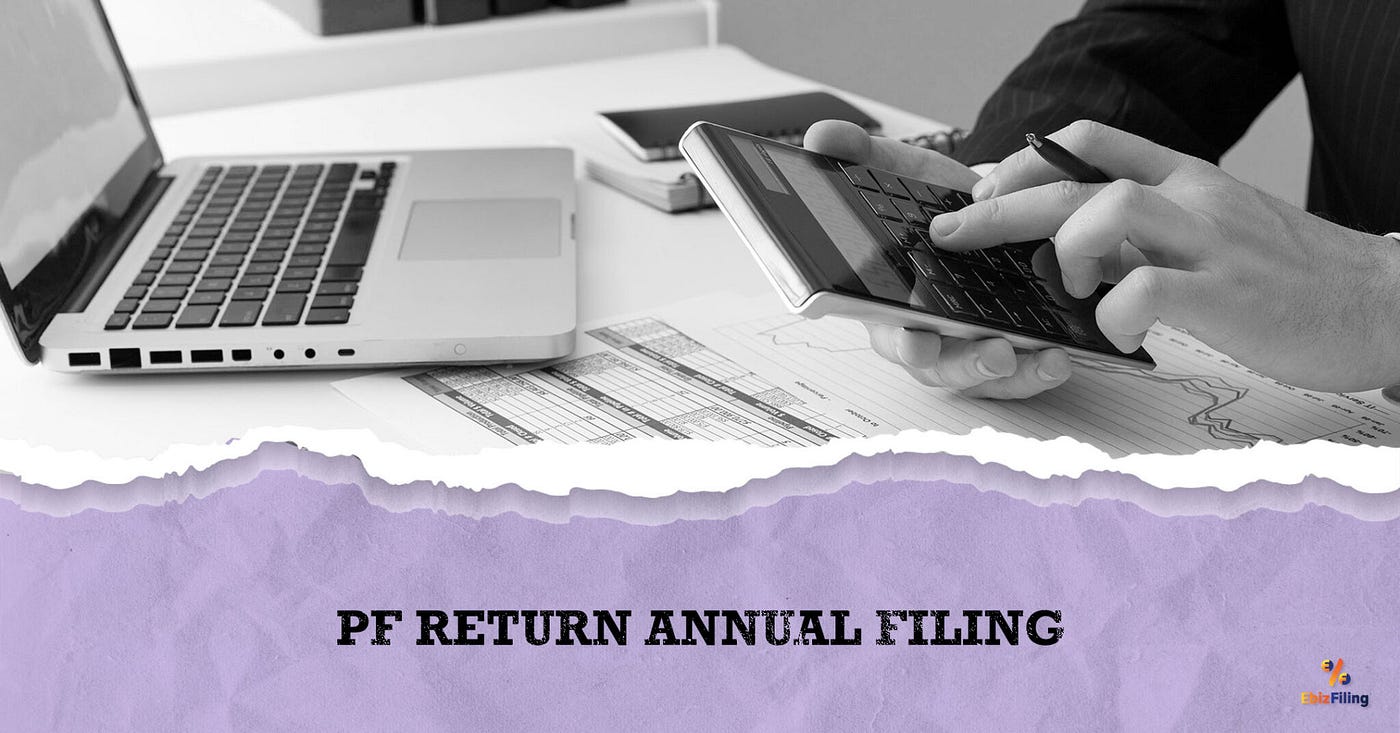Pf Return Filling
Filing PF (Provident Fund) returns involves the process of submitting necessary documents and details to the appropriate authorities regarding contributions made towards employees' provident fund accounts. Employers are typically responsible for ensuring accurate and timely filing of PF returns to comply with statutory requirements.The process typically begins with the employer compiling details such as the total wages paid to employees, deductions made towards provident fund contributions, and any additional administrative charges. These details are then organized into a specific format as required by the Employees' Provident Fund Organisation (EPFO) or other relevant governing bodies.
Once the information is compiled, employers must complete the necessary forms and submit them along with supporting documents to the EPFO. This submission is crucial for ensuring that contributions made towards employees' PF accounts are accounted for and managed appropriately.Filing PF returns is not just a legal requirement but also ensures transparency and compliance with labor regulations. Employers are expected to adhere to deadlines set by regulatory authorities to avoid penalties or legal consequences for non-compliance. Proper documentation and accurate reporting are essential to facilitate smooth operations and maintain trust between employers, employees, and regulatory bodies involved in managing provident fund contributions.

Who is required to file the pf returns ?
Filing PF (Provident Fund) returns is primarily the responsibility of employers who fall under the purview of the Employees' Provident Fund and Miscellaneous Provisions Act, 1952. This includes:
• Employers:
Any establishment or entity that employs 20 or more employees is required to register under the EPF Act and subsequently file PF returns. For certain industries or regions, the threshold for mandatory registration and filing may vary, so it's essential for employers to verify specific requirements based on their location and industry.
• Employees' Provident Fund Organisation (EPFO):
This governmental organization oversees the implementation and enforcement of provident fund regulations. It mandates employers to regularly file PF returns to report the contributions made towards employees' provident fund accounts.
• Contractors and Subcontractors:
In cases where work is outsourced through contractors or subcontractors, they may also be required to file PF returns if they employ more than the stipulated number of workers (typically 20 or more).
Filing PF returns involves submitting detailed information about wages paid, provident fund contributions deducted, administrative charges, and other relevant details as per the prescribed format and timeline specified by the EPFO. Compliance with these regulations ensures that employees' provident fund accounts are properly managed and contributions are correctly accounted for, benefiting both employers and employees in terms of social security and financial stability.
Document requuieddddDocuments required for Pf Return Filling
Filing PF (Provident Fund) returns requires specific documents and information to ensure accurate reporting and compliance with regulatory requirements. Here are the typical documents and details that are necessary:
- Employee Details
- Employer Details
- Contribution Details
- Challans and Receipt
- Registers and Records
- Form 5
- Form 10
- RAudit Reports
Benefits OF Provident Fund Return Filling
Compliance with Legal Requirements:
Filing PF returns ensures compliance with the Employees' Provident Fund Organisation (EPFO) regulations and the Employees' Provident Fund Act, 1952, thereby avoiding penalties and legal consequences
Employee Financial Security:
Regular PF contributions through accurate filing ensure that employees build a substantial corpus for retirement, providing financial security post-employment.
Employer Reputation:
Compliance enhances the employer's reputation as a responsible entity that values employee welfare and adheres to statutory obligations, fostering trust among employees and stakeholders.
ax Benefits:
Contributions made towards employees' PF accounts are eligible for tax benefits under Section 80C of the Income Tax Act, reducing taxable income for both employers and employees.